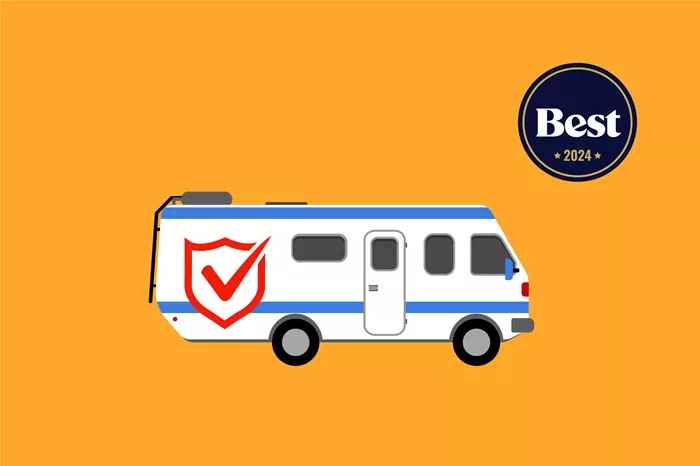When it comes to enjoying the open road or spending summers in the great outdoors, RVs offer a unique blend of comfort and adventure. However, for seasonal campers, the question of RV insurance becomes crucial. Whether you’re a weekend warrior or someone who only camps during the warmer months, understanding the nuances of RV insurance for seasonal use is essential to protect both your vehicle and your investment.
In this insurance guide, we will explore what you need to know about RV insurance for seasonal campers, how it differs from year-round RV coverage, and how to find the best coverage for your specific needs. Whether you’re new to RV camping or a seasoned traveler, this article will help you navigate the options available to ensure you have the right coverage at a price that fits your budget.
Understanding RV Insurance for Seasonal Campers
Seasonal campers typically use their RVs for only part of the year. This seasonal usage can significantly influence the type of insurance you need. Unlike full-time RVers who live in their vehicles year-round, seasonal campers use their RVs primarily for vacations, weekend getaways, and seasonal camping trips. This difference in usage affects both the RV insurance coverage options and the cost of premiums.
Generally, seasonal RV insurance covers many of the same risks as year-round coverage, such as damage to the RV, liability, and theft. However, because seasonal RVs are parked for much of the year, some policies allow for discounts or offer specialized coverage options tailored to part-time use.
Why Do Seasonal Campers Need RV Insurance?
Many seasonal campers make the mistake of assuming that their RV insurance isn’t necessary or that their existing auto insurance will cover them while they camp. However, the risks of not having proper insurance coverage can be significant.
- Protection Against Damage: Even if your RV is only used seasonally, accidents can still happen, whether it’s a collision while driving or weather-related damage. Having the right insurance ensures you won’t face financial setbacks if your RV is damaged.
- Theft: RVs, especially high-end models, can be targets for theft. Adequate insurance coverage will protect you if your RV is stolen or vandalized.
- Liability Coverage: If you’re involved in an accident that causes injury or damage to another person or their property, liability insurance will cover the costs, which could be financially devastating without it.
Types of RV Insurance for Seasonal Campers
Just like other types of insurance, RV insurance coverage comes in various types. Here are the most common types of insurance policies available for seasonal campers:
1. Comprehensive RV Insurance
This type of coverage protects your RV against non-collision incidents, such as fire, theft, vandalism, and weather-related damage. If your RV is damaged while not in use, comprehensive insurance will typically cover repair or replacement costs.
2. Collision Coverage
Collision insurance covers repairs or replacements if your RV is damaged in an accident, regardless of who is at fault. While this is useful for full-time RVers, it can also be beneficial for seasonal campers who still drive their RVs to and from campsites.
3. Liability Coverage
Liability coverage is critical for any type of insurance, especially if you plan to drive your RV. It covers expenses related to damages or injuries caused to others if you’re involved in an accident. This coverage is mandatory in many states.
4. Personal Injury Protection (PIP)
PIP insurance covers medical costs for you and your passengers if you’re injured in an RV-related accident, regardless of fault. While not mandatory in all states, it’s a valuable policy for seasonal campers who may be using their RVs to travel.
5. Uninsured/Underinsured Motorist Coverage
If you’re involved in an accident with a driver who doesn’t have sufficient insurance, this coverage will help pay for repairs or medical costs that are not covered by the other party’s policy.
How Seasonal RV Insurance Differs from Year-Round Coverage
Seasonal RV insurance is often more affordable than year-round coverage because you’re insuring the vehicle for a shorter period. When your RV is in storage or not being used, you may be able to opt for limited coverage or even a storage policy, which can lower your insurance rates. This allows you to save money during the off-season while ensuring you still have protection in place.
On the other hand, year-round RV insurance covers your vehicle no matter how much you use it. Full-time RVers typically need this type of insurance, as they live in their RVs throughout the year. For seasonal campers, full-time coverage may not be necessary unless they plan on using their RVs frequently during certain times of the year.
Factors That Affect RV Insurance Rates for Seasonal Campers
Just like with car insurance rates, there are several factors that influence how much you’ll pay for RV insurance. Some of these factors include:
- Type and Age of RV: Newer or more expensive RVs tend to have higher insurance premiums due to their higher replacement costs. Additionally, the type of RV—whether it’s a motorhome, travel trailer, or camper—can affect your premium.
- Driving History: Your history as a driver can influence your rates. A clean driving record can help you secure better rates, while past accidents or violations may increase premiums.
- Location: Where you live or plan to store your RV can also impact your rates. Areas with higher risks of natural disasters, theft, or accidents may have higher premiums.
- Coverage Levels: The more comprehensive your coverage, the higher your premium will be. However, opting for minimal coverage may leave you financially exposed in the event of an accident or theft.
How to Compare RV Insurance Quotes for Seasonal Campers
When shopping for RV insurance, it’s essential to compare different quotes from various providers. Here’s how you can make sure you’re getting the best deal:
- Consider the Coverage: Make sure the quote includes the necessary coverage for your needs. Sometimes, the cheapest quote may not offer the best protection.
- Review Discounts: Many insurers offer discounts for seasonal RVers, such as discounts for RV storage or if you only drive your RV during the summer months.
- Read the Fine Print: Ensure you understand the terms of the policy, including what’s covered and any exclusions. Don’t hesitate to ask the insurer about any uncertainties.
Conclusion
For seasonal campers, having the right RV insurance is essential to protecting both your vehicle and your peace of mind. By choosing the appropriate coverage based on your specific needs, understanding the differences between seasonal and year-round insurance, and shopping around for the best rates, you can ensure that you are adequately covered without overpaying.
Remember, when it comes to RV insurance, it’s crucial to work with a trustworthy insurance provider who can help you navigate your options and provide guidance tailored to your circumstances. A well-chosen RV policy can make all the difference in your seasonal camping adventures.
Related topic:
Is Vintage RV Insurance Worth the Extra Protection?




















